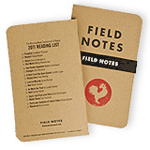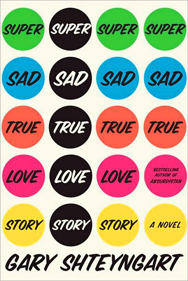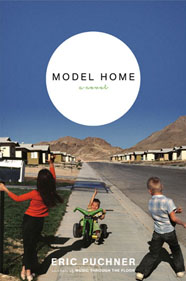-
March 16, 2011
Opening Round
-
Commentary by
Kevin Guilfoile & John Warner
-
Today’s Winner:
4Model Home
Kevin: If I can go all Sonny Chiba on Judge Baldwin’s modesty for a minute, he did not just “wade through Infinite Jest” in 2009, but rather created a massive online reading project called Infinite Summer, in which thousands of people from around the world read that David Foster Wallace masterpiece together, sharing their insights and encouraging each other to “keep coming back” until everyone finished. I was honored to be one of the guides for that event (and you, John, chimed in as a guest, as well), and I encourage anyone attempting to tackle that book on their own to go back to the Infinite Summer site and use it as a resource. It has since become the subject of SXSWi panels and chapters in scholarly books and it was one of the most rewarding reading experiences of my life.
Infinite Jest wasn’t the first book to come to mind as I was reading Super Sad True Love Story, however. The dystopia business in IJ all happens in the background. It is somehow both integral to the plot and beside the point. Ninety percent of the scenes take place inside a prep school for tennis phenoms or a halfway house, and the truly insane dystopian stuff happening outside those walls is really of secondary concern to the characters, whose often hilarious (and sometimes not so hilarious) troubles were rooted in real, hardwired, human impulses.
The dystopian future of Super Sad, on the other hand, hangs over every acronym-stuffed sentence of the book. And it’s very funny. Both of these books are funny, actually, but I laughed more at Super Sad True Love Story, and that counts for a lot with me. Perhaps a result of the affected ways their stories are told, however, the characters were never completely real to me. The book was so dominated by its setting that I just had a hard time relating intimately to them. They made me laugh, but I didn’t feel like they were the kind of flesh and blood guides I wanted to lead me through the landscape.
John: To work, I think a satirical novel has to meet the “it’s funny because it’s true,” standard, and for the most part, I think Super Sad really succeeds, and is the best of Shteyngart’s novels. I was more invested in Lenny and Eunice than you, and didn’t have that particular qualm, or maybe we have another example of how important our own particular aesthetic wiring is when it comes to assessing books, particularly when we’re asked to compare two books as the ToB demands. I don’t think I ever worried how “real” they were, and I was willing to accept a certain amount of stretching because of the satire framework. Occasionally, characters might have to act their parts, which may flatten them out. I don’t see that as a weakness, necessarily, but it is a compromise that has to be worked out if you’re going to do what Shteyngart’s up to here.
 Buy anything from Field Notes from now until the end of the ToB and receive a special “reading list” memo book free, while they last. Use coupon code ROOSTER.
Buy anything from Field Notes from now until the end of the ToB and receive a special “reading list” memo book free, while they last. Use coupon code ROOSTER.Baldwin labels Super Sad a five-minutes-into-the-future dystopian story, but I take some issue there. His comparison to George Saunders is interesting, and I would agree that Saunders fits the “five minutes” description, but Super Sad seems to me to be more like a 15-year-forward projection and much of it strikes home, both in the world he created and the one we live in today. I think the novel is super successful at what it sets out to do, but Matthew is open and honest enough to admit that he’s done with that, which is the beauty of our tournament.
Kevin: I read both of these novels on my iPhone. And Super Sad True Love Story might be the perfect novel to read on your mobile device. With everyone in the book carrying around an apparat, constantly messaging each other and instantly calculating one another’s credit rating and relative fuckability index, you really can feel like a world in which we are all somehow insulated from other humans and simultaneously stripped of all privacy is really coming the day after tomorrow.
There is also something about staring at your phone and laughing out loud while waiting in line at the butcher that still elicits some of the weirdest looks from strangers. They gave me the kind of appalled and wondrous looks that I give when the guy next to me on the plane reaches into his briefcase and pulls out porn.
John: I can report that I read both of these novels on the Kindle, and in each case, after the fact, I went out and purchased the hardcover versions.
Yes, I am that book-nerdy. It’s a problem for which there is no cure.
I think you also raise another issue when it comes to responding to specific books, which is whatever else is going on while you’re engaged with a book will affect your relationship to that book, kind of like how Matthew’s amazing Infinite Jest group-read makes him feel like he’s put a cap on a certain type of novel, or like how the first book you read after a book you really got into inevitably gets tarred with the “not as good as the last book” label. Someone needs to start a service where they recommend “rebound books”—the book to read after you’d love a book deeply so you can clear out the gray matter and make room for another great experience.
Kevin: It is inherent in the ToB format that sometimes you come off dissing a book without intending to just by comparing it to another. I much enjoyed Super Sad True Love Story, I just never felt especially invested in it. I was actually reading it on my iPhone at the same time I was reading other fully-actualized books, and at one point I opened my Kindle app and remembered I was about halfway through and I was like, “Oh yeah, this book is good!” and started reading it again.
I certainly didn’t have that experience with Model Home. In fact, I think Judge Baldwin’s somewhat ambivalent reaction to the events in the novel reflects the tangible substance of the characters. This is a comic novel, but it’s also incredibly tense. The father is keeping a secret from his family. The daughter is involved in a relationship she knows her parents won’t approve of (and probably because they won’t approve of it). Tragedy happens. And all this small-scale, personal drama had more emotional impact for me than the large-scale political/economic trauma of Super Sad because I just cared a little more. The writing is sharp, as well. At one point Camille describes the Polish filmmaker who is helping her make a sex-ed film as having “the weedy arms and bedtime squint that Camille associated with hitchhikers.” It’s the kind of description that allows you to perfectly imagine him, but also accomplishes what pages of exposition on Camille’s character couldn’t. Model Home is one of the great underhyped gems of 2010, and I doubt I would have discovered it if it hadn’t been selected for the ToB.
John: I like Super Sad True Love Story quite a lot, so much so that I assigned it as part of my contemporary literature course this semester, which means there’s 65 Clemson University undergraduates who have to have completed reading it by tomorrow. (There will be an in-class journal assignment, everyone.)
But if I were judging this round, my pick would be the same as Judge Baldwin’s, and yours. I really loved Model Home. I actually read this around the time of its initial release, and each week the major attention didn’t pour in, I was a little more surprised. While Shteyngart relies on a future setting to show us today’s world, Puchner manages to do it by putting us back into the mid-’80s and showing that the present decade isn’t the bust following a boom in our history. The way the Zillers try to negotiate that world feels completely intertwined with our current one, and the way Puchner works the different tones sang to me in a key that I dig. The close third-person narration is masterfully done, sketching each character in turn, without jarring as the novel is handed off, section to section. Even minor characters, like the security guard who falls for daughter Lyle Ziller gets drawn in full.
Model Home has begun to pick up some year-end accolades, being named a PEN/Faulkner finalist, and nabbing second prize in the Barnes & Noble Discover awards. I hope it’s enough for a publisher to give Eric Puchner a couple more swings at the bat because in me, he has a fan for life, and maybe a Rooster victory from the four seed will do some good.
Just one more to go before round one is in the books (ha ha ha ha ha)! Tomorrow, it’s our reader judge, Catherine George, who gets a tough and intriguing matchup with The Particular Sadness of Lemon Cake versus Bloodroot.
Kevin Guilfoile is the author of two acclaimed novels, Cast of Shadows and The Thousand, which have been translated into more than 20 languages.
John Warner’s novel, The Funny Man, will be released late September of this year by Soho Press. For the time being, he teaches at Clemson University.

















